NFTs for Musicians: A new cash source for creatives?
Is blockchain technology the next leap forward for the music business? NFTs (Non-Fungible Tokens) have recently become the biggest buzz word in the music industry. Without being able to tour for well over a year due to the COVID-19 pandemic, musicians have been desperately seeking ways to create new revenue streams. Could NFTs be a new cash source for creatives? Or is it yet another technology that’s not going to make you any money? Get ready for the deep dive.
NFTs for Musicians
So what are NFTs? An NFT, or non-fungible token, is a digital collectible sold via blockchain (a public and digital ledger proving ownership). Proponents claim this provides an innovative new opportunity for artists to creatively engage with fans and earn revenue. First becoming popular in the fine art world, popular musical artists across every genre have jumped on the trend and released their own material through NFTs – from Kings of Leon and Taylor Swift to electronic artists like Deadmau5 and the Chainsmokers. They are a good way for artists to make up for some lost revenue due to pandemic restrictions and the under-payment of the streaming era. With it, artists are able to make money directly from the fans, without having to go through a third party distributor, manager, or record label.
How do NFTs generate income?
Put simply, NFTs are digital items with limited availability. Think of it as a certificate of authenticity. Whoever owns one can transfer it, but it can never be copied. According to basic economics, this means that a small supply will drive a high demand – but only if there’s a demand (more on this later).
The most common use of NFT for musicians would be exclusively released albums and singles. But it can take many other forms such as concert tickets, images, contracts, handwritten lyrics, custom sound samples, and more. Public distribution of these items helps to ensure transparency and keep things honest by preventing tampering and fraud, perpetuating the attributions of rights, and tracking transactions. In this digital age it is far too easy to simply copy a work. But buying an NFT provides individual proof of ownership regardless of how many other copies exist. It’s like owning a photo of your favourite musician that’s been hand-signed. People can copy the photo as much as they want, but you own one with a direct link to them.
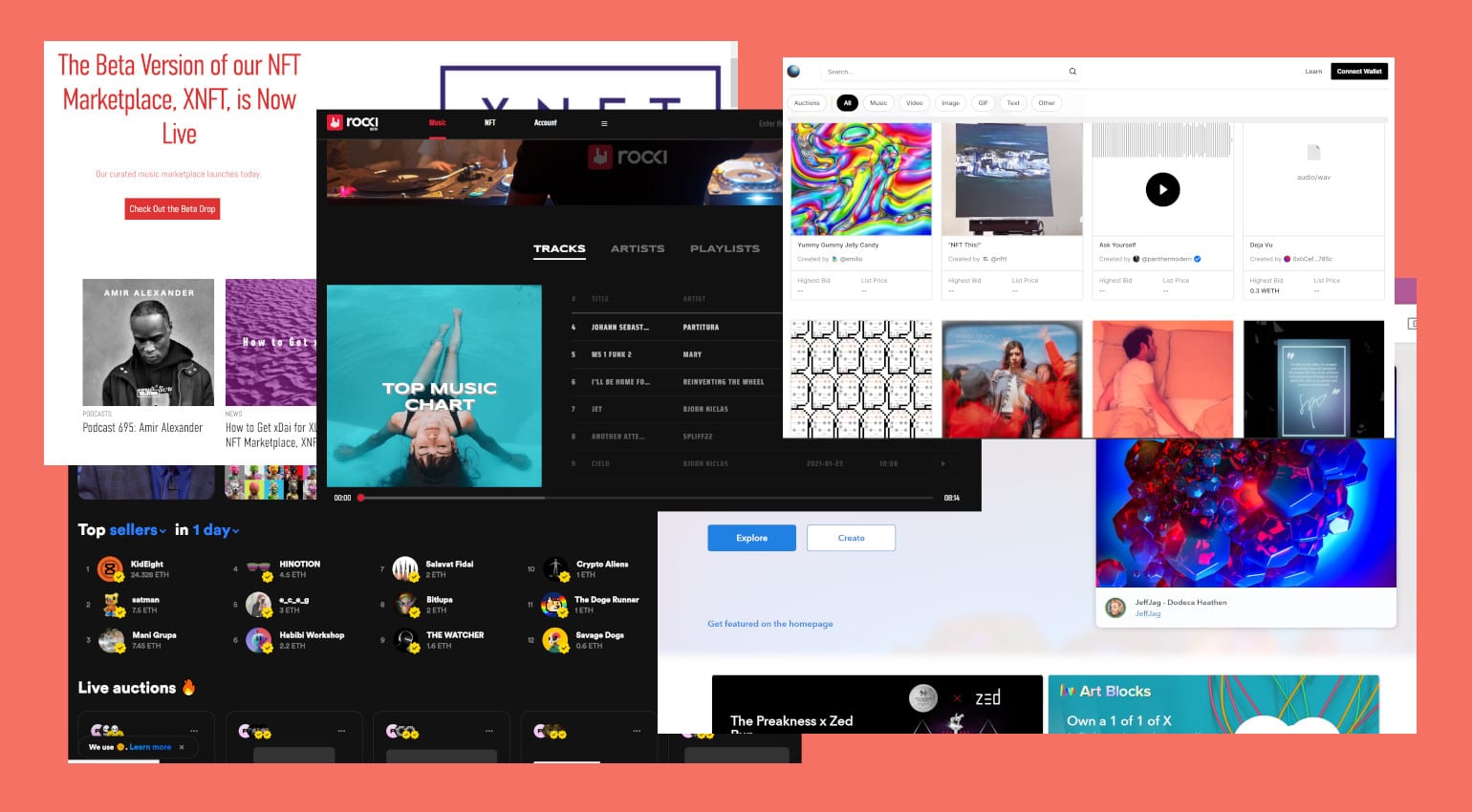
Zora, OpenSea, Rocki, Rarible: Many portals are lining up, ready to mint your music as NFTs · Source: Rarible/Rocki/OpenSea/XLR8r
Benefits of NFTs for Musicians
On paper, NFTs can benefit you as a musician in a number of ways. Additional revenue streams could certainly be a boon to all artists in light of how COVID devastated the music business. Importantly, they are extremely convenient for fans to consume. It is really no more difficult than online shopping. But if you’re a new and emerging artist still trying to get the attention of listeners and build a fanbase, there might be more pressing things to focus on.
Another plus: It cuts out the middlemen. Whether fans are purchasing a whole album, streaming a song, or buying concert tickets – somebody that is not the artist is always taking a cut. As with all crypto exchanges, selling an NFT is a direct transaction.
The technology could also help keep ticketing sales honest, perhaps by ending scalping and resale on secondary markets altogether. Blockchain could also possibly stand in for copyright registration, since it acts as a time-stamped proof of a work’s creation. It could also focus attention away from centralized streaming platforms like Spotify, who don’t pay much per stream, back to unique pieces of art purchased by fans directly from the artist.
So much for the hype
Not everything is gold though. Major artists can easily capitalize on the sale of verified, limited-edition items. But new and up-and-coming artists may have a difficult time making the NFT movement work for them. The idea is also very new, so it could continue booming or completely bust in the future. As an artist, it begs some questions: Will my/our fans pay top dollar for content they could get elsewhere for much less, or even free? Does it make sense to not make all of our work as widely available as possible, since we’re doing everything possible to build a fanbase at this point?
Most independent artists do all, or most, of everything. Between songwriting, rehearsing, booking and performing, to social media content scheduling and marketing, there is no bandwidth or time to produce content specifically aimed at the NFT audience. If you come up with gold, it’s to the independent artist’s advantage to make it as widely available as possible. NFT demand is generated by the market for the art of a musician. It goes without saying that popular artists should have no trouble selling them, but for newcomers the demand probably isn’t there yet. So if your music isn’t already well-known, you don’t have nearly the same benefit that established acts do.
False Scarcity
And what about false scarcity? The real idea behind NFTs is that they make something scarce, producing value. But something may appear to be more valuable than it might really be. Bubble concerns are very real, as NFTs are booming and might be overvalued right now. If consumer interest fades, value will go down, which could leave those that invested in these items in the lurch.
There is a rising trend of artists that are releasing sample packs as NFTs, allowing the buyer to use them in their own productions. This could present some legal issues however, as artists that are under record contracts need to tread lightly so as not to breach the terms of their contracts. And as copyright law is complex and varies by country, this decentralized way of transacting could raise more issues in the future.
I Want to Release an NFT!
If you’ve read this far and you’re still interested in creating your very own NFT, the process might be a little confusing. Creating – or minting – an NFT requires computing power, and in order to offset that cost there is a charge that’s called a “gas fee”. There is a minting fee to turn your work into NFT, so you will also be charged for that. Other fees like listing fees are also charged on some sites. The minimum cost of minting an NFT on the Ethereum blockchain can range between $70 and $100 – or more.
There is also a fee for using the platform to sell NFTs. The most important thing to remember about gas fees is that it they are a highly variable price, based on market demand.
Where to Monetize
There are currently a number of platforms that can help you monetize your work. Other marketplaces are in beta stage or still not open to host music, but they’re already vying for the attention of musicians, aiming to become the next big thing.
Rarible is being used by musicians and artists to sell or auction NFTs linked to its music. Mintable says it gives musicians a way to mint “gasless” NFTs, without the charge normally levied when making them. OpenSea is another platform that’s receiving a lot of attention. Zora bills itself as a “universal media registry” from which you can publish your work and transact. XLR8r is an upcoming marketplace targeted exclusively at electronic music genres. An interesting angle here is that XLR8r promises the issuer a royalty every time the NFT is resold. Rocki is a new, re-imagined streaming platform; its creators say it will provide more transparency by conducting all transactions via blockchain.
One thing you’re going to need is a crypto wallet before you can mint your NFTs. Many sites recommend or use Metamask, for example.
Whether you decide to jump in or wait, it’s worth remembering that the music business is one of the most volatile in the entertainment industry, and the pandemic made things all that much harder. NFTs could be the way of the future – or they could fade away as quickly as they appeared. Only time will tell.
More Background Reading
- A detailed explainer about NFTs on Opensea
- Wikipedia article
- Pitchfork’s often-cited explainer on NFTs and the music industry
Explainer Videos
You are currently viewing a placeholder content from YouTube. To access the actual content, click the button below. Please note that doing so will share data with third-party providers.
You are currently viewing a placeholder content from YouTube. To access the actual content, click the button below. Please note that doing so will share data with third-party providers.
You are currently viewing a placeholder content from YouTube. To access the actual content, click the button below. Please note that doing so will share data with third-party providers.
10 responses to “NFTs for Musicians: A new cash source for creatives?”
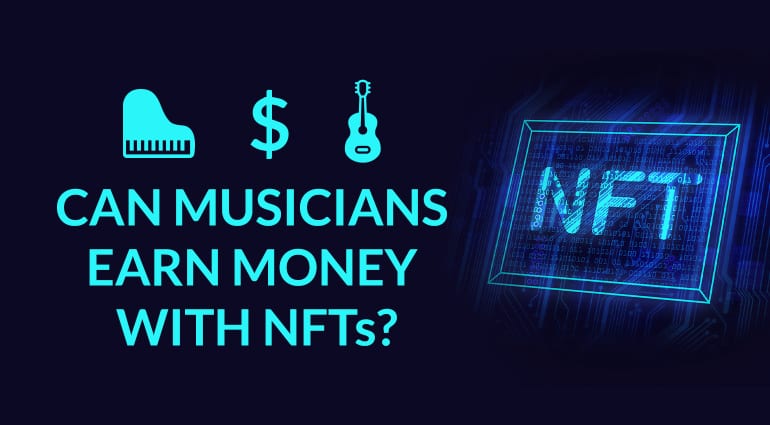

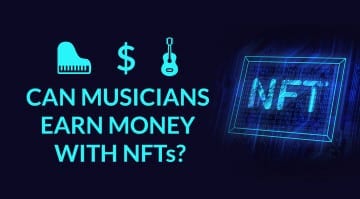

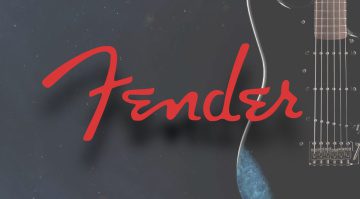
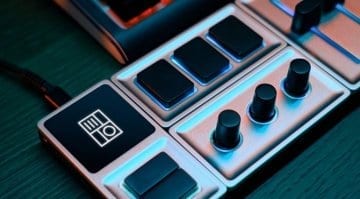


The TL:DR of NFT :
Very few people will make a ton of money, it’ll make the news.
Most musicians just won’t earn a dime from that (even if they try). Better set up a bandcamp or a patreon. People who want to support you will do so (and most people don’t see the point of “owning” a digital file. Cause it doesn’t make any sense).
We will have insane speculative market for a while. Then it’ll disappear in a couple of years in a total indifference.
Oh, I almost forgot: all this would just be an absurd fad to be laughed at… if each NFT didn’t burn as much C02 as a car driving 700km
Please fellow musicians, just don’t buy into that crap. Make it disappear as fast as possible.
The boat sailed with Napster and the CD. If it can be copied easily, it WILL be. No one cares about a ‘genuine’ watermark.
You want something that can’t be copied easily? Print your music on vinyl. It’s collectible and durable, and no one owns a vinyl press to rip you off! Even the sleeve is collectible..!
You know what smells like a Ponzi scheme? NFT’s. The Pet Rock of the 2020’s
Ponzi scheme is the right term. We are at the beginning of the scheme and speculators are buzzing… but when they realize they won’t be able to recoup their investment a couple of steps from now the whole thing will crumble
It’ll probably survive as a super niche crap for people with too much time and too much money… and that’s it. Let’s hope it doesn’t take too long to get there
A succinct answer: NO!
Crypto is a disaster for the environment like there are not enough difficulties with the environment already. If you want to be associated with that as a artist enter at your own risk. These NFT will be forever and this will turn against you sooner then later.
NFT is a great modern day example of the faulty character of human beings when you think of it, enriching yourself at the cost of others and in the end yourself.
It’s not “humans”. The vast majority of human beings (i.e. nearly everyone) find this utterly absurd.
Most people despise speculation and don’t seek mark of prestige, especially when they don’t really exist
The issue is certainly not “humans” but capitalism and commodity fetishism
Never was the saying ‘A fool and their money are easily parted’ more apt than with NFTs.
Wow a lot of very uneducated views here. A lot of NFT marketplaces are now on PoS networks such as Tezos / Cardano. I’ve already made decent chunk from NFT’s in collaboration with visual artists and with minimal environmental impact. I suggest people doing their own research from reputable sources and doing some due diligence before making comments like these.
Having a different opinion than yours doesn’t make it “uneducated”.
I’m fully aware of the claims of “lesser environmental impact”, but it’s still a LOT for what’s essentially a glorified property contract.
Also, good for you if you’ve made money with NFT, but there’s nothing new with this technology. It’s the same old art speculation with a shiny coat… and it’s bound to remain a very niche market limited to a very small number of artists.
Why ? Because only a very small part of society finds value (and social recognition) into marks of prestiges such as NFT (it is essentially useless. Its only purpose is an attempt to get some prestige OR speculate over it. It’s literally the same old prestige of owning a piece of art, minus the art itself !)
Also, just like the old art market, “having value” doesn’t appear overnight. It’s mostly arbitrary and most artists just won’t be able to sell any NFT because they just cannot be worth anything on this market regardless of their artistic qualities
That. Thing. Is. Useless.
Art speculation has never made artists’ life easier or more comfortable, and this version won’t either.
Most artists won’t be able to sell anything. And most people won’t even consider buying NFT. I know that for a fact because NFT is essentially nothing new.
It’s harmful for the environment and it’s harmful for the artists because it sells fake dreams lacquered in mildly complex technological concepts
I’m very happy that it’s widely rejected, because it should be. I’m really happy it’s seen equally bad as someone littering, because it’s not that much better.
I couldn’t agree with you more, Ab. Far from the likes of you and I being uneducated, I’d suggest mw is somewhat naive!
You are currently viewing a placeholder content from Facebook. To access the actual content, click the button below. Please note that doing so will share data with third-party providers.
More InformationYou are currently viewing a placeholder content from Instagram. To access the actual content, click the button below. Please note that doing so will share data with third-party providers.
More InformationYou are currently viewing a placeholder content from X. To access the actual content, click the button below. Please note that doing so will share data with third-party providers.
More Information